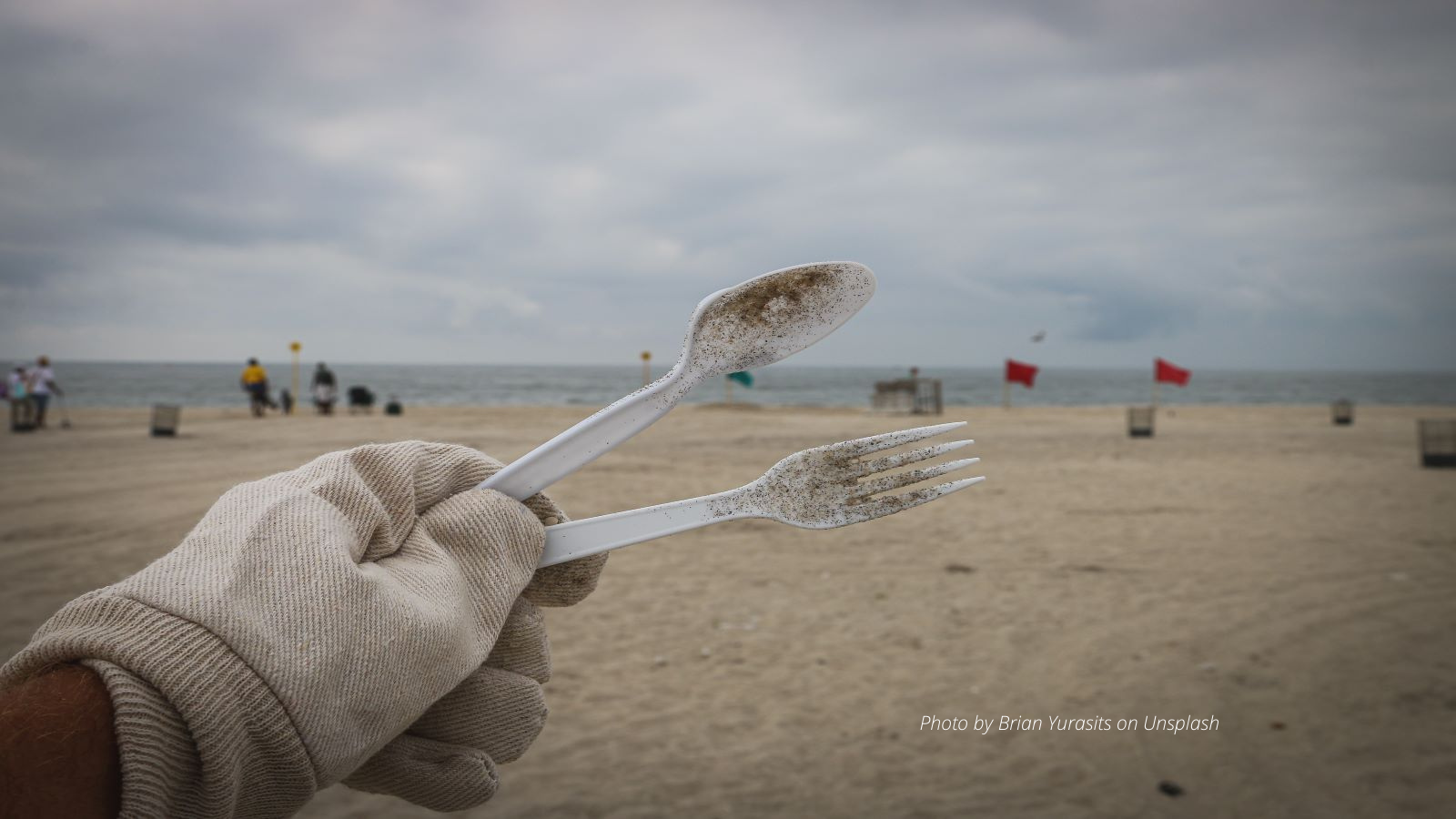Adding a fourth “W:” Taking care of our people and planet in the time of COVID-19
This past weekend, many of us celebrated America’s Independence Day. To me, the Fourth of July always felt like the half-way point of the year. Needless to say, it’s been a stressful first half of 2020 with COVID-19. Now that society is starting to slowly open, and we are allowed to cautiously venture out, we are being encouraged to practice the three Ws: Wear a mask; wait 6 feet apart to avoid close contact; and wash your hands. Now I’d like to add a fourth W: “Waste not. Responsibly use reusables during this time.”

We know about the importance of removing plastic waste from our environment. Plastic pollution is affecting our oceans, our rivers and our day-to-day life. Our Wildlife Over Waste fellow Kara Nunnally shares a story about why we need to responsibly use reusables.
This past weekend, many of us celebrated America’s Independence Day. To me, the Fourth of July always felt like the half-way point of the year. Needless to say, it’s been a stressful first half of 2020.
North Carolina imposed stay-at-home orders to flatten the COVID-19 curve, lessen the strain on hospitals, and provide time to receive much needed equipment like PPE. While there is no doubt this pandemic has wreaked havoc across the world by threatening lives, personal well-being and economies, this effort asked us to do our part to lower the number of North Carolinians infected by the novel coronavirus. That said, it’s also threatening our environment.
Now that society is starting to slowly open, and we are allowed to cautiously venture out, we are being encouraged to practice the three Ws: Wear a mask; wait 6 feet apart to avoid close contact; and wash your hands. Now I’d like to add a fourth W: “Waste not. Responsibly use reusables during this time.”
Early on, during Phase 1, I ran an errand for my two week supply of groceries. I was standing in line at Trader Joe’s (6 feet away from the folks in front and behind me) with my reusable bags, like always, when I was told I couldn’t use them inside. So I shoved them in my purse, grabbed the just sanitized cart, and quickly grabbed my supplies. Luckily, I packed my groceries in paper bags, which allowed me to reuse them for other purposes at my house before recycling them.
About a month or so later, I went to another local grocery store and, again, I couldn’t use my reusable bags there. This time, the employee insisted that I use plastic, single-use bags only — despite the fact I planned to pack my own bags. I was a bit taken aback at the time, but I understood and obliged.
Admittedly, I’m not the greatest cook. So, I’ve ordered from local restaurants to help support struggling businesses as they cope and get a healthy, more satisfying meal. But when I received my delivery, I realized that everything was single-use: polystyrene containers, plastic bags, and plastic, non-compostable wares in smaller plastic bags. I was disgusted. My ire wasn’t directed at the small business or their employees, but at the fact that wasteful single-use plastic was essentially being mandated and branded as safer than reusables or other alternatives.
It hit me. Yes, absolutely we want to keep everyone as safe as possible and lessen the spread of the coronavirus, but we cannot allow for unfounded claims that single-use plastics are the only safe answer to stand. Reusables can be safe. We simply need to take responsibility to keep them clean, such as washing with hot water and soap, or applying alcohol based hand sanitizer before and after handling. Reusables and green alternatives should be the fabric of how we operate, not a transient practice.
We’ve already seen the negative impacts of using single-use waste and plastics from this pandemic. For example, some are predicting that there will be more masks in the ocean than jellyfish soon. This realization is already hitting close to home. In fact, I saw gloves and masks littered all around outside when I visited those grocery stores in the Triangle of North Carolina. Making matters worse, I was scared to pick them up because of the possible contamination. Sadly, I wasn’t even sure if that was a valid concern? Should I have found a barrier method to properly dispose of these items to protect our environment? I usually pick up trash no matter what, but now, it’s a Catch-22.
This dispiriting situation is adding to the already terrible pollution problem we face. In less than a century of its existence, plastic waste has been found at the deepest part of the Earth, Mariana Trench. It’s literally gone too far. And, it didn’t take long.
It’s not just sad, unsightly and inconvenient to have plastic in our waterways and oceans, but it’s dangerous. Wildlife like birds, marine mammals, sea turtles and fish can mistake plastics as food and ultimately consume them. Not only can that animal die, but this plastic can also infiltrate our food system because we may consume some of those animals as a means for sustenance. We already ingest a credit card’s worth of plastic each week. This is causing enough health concerns as it is, and we shouldn’t add to the growing circumstance.
None of this is to detract from the hardship families and healthcare workers are going through because of this virus. However, we should be mindful of the long-term effects that false information can have on the very spaces in which we live, the food we eat and the wildlife with which we interact. This is especially true here in North Carolina. We have so many precious resources from the mountains and the piedmont to the waterways and the coast. We need to protect our humans and our planet, and we can do so harmoniously.
Remember: Wear, Wait, Wash, and Waste not.
